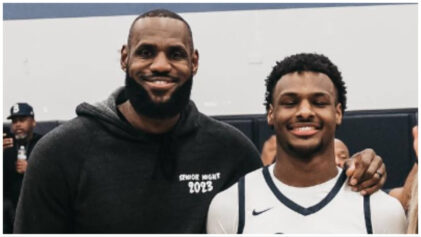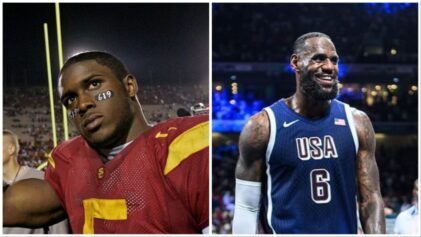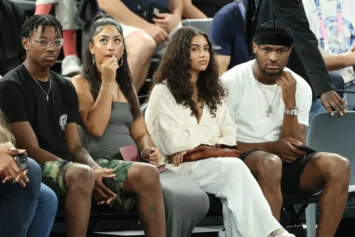In less than a week after the NCAA announced a set of new rules for agents looking to represent college students thinking of entering the NBA, those guidelines have been amended.
The sudden switch comes after several public figures said the rules were discriminatory.
Because in their initial statement, the NCAA said agents will have to hold a college degree, undergo a background check, have liability insurance, be a member of the National Basketball Players Association for a minimum of three years and take an exam this November.
LeBron James, who’s repped by agent Rich Paul, was one of the first to call out the organization, as did a number of other players.
Paul is one of the NBA’s most prominent agents, and he also reps others in the league like Ben Simmons, Tristan Thompson and Draymond Green, though he didn’t graduate from college.
And because of that, people started calling the guidelines “The Rich Paul Rule,” as to say Paul is a perfect example of an agent without a degree who’s successful, scrupulous and respected.
On Monday the NCAA said they’ll now follow the lead of the National Basketball Players Association as far as degrees go but the rest of the guidelines will remain.
“We are committed to providing student-athletes who are deciding whether to stay in school or explore NBA draft options with access to a wide array of resources to make their decision,” the statement read.
“NCAA member schools developed the new agent certification process to accomplish that goal and reflect our higher education mission.”
“However, we have been made aware of several current agents who have appropriately represented former student-athletes in their professional quest and whom the National Basketball Players Association has granted waivers of its bachelor’s degree requirement,” it continued.
The organization also seemed to address Paul but didn’t mention his name.
“While specific individuals were not considered when developing our process, we respect the NBPA’s determination of qualification and have amended our certification criteria,” read the statement.
Just hours before the change surfaced, Paul wrote an op-ed piece for The Athletic about the rules and said they would only keep certain individuals locked out.
“Requiring a four-year degree accomplishes only one thing: Systematically excluding those who come from a world where college is unrealistic,” he wrote. “Does anyone really believe a four-year degree is what separates an ethical person from a con artist?”
“Let’s also be clear that once the NCAA requires a four-year degree for athletes ‘testing the waters,’ it’s only a matter of time until this idea is socialized, no longer questioned and then more broadly applied.”
“We all know how this works. Unfair policy is introduced incrementally so people accept it because it only affects a small group. Then the unfair policy quietly evolves into institutional policy. I’m not sure what the technical term is for that because I didn’t finish college but I know it when I see it,” he added.


